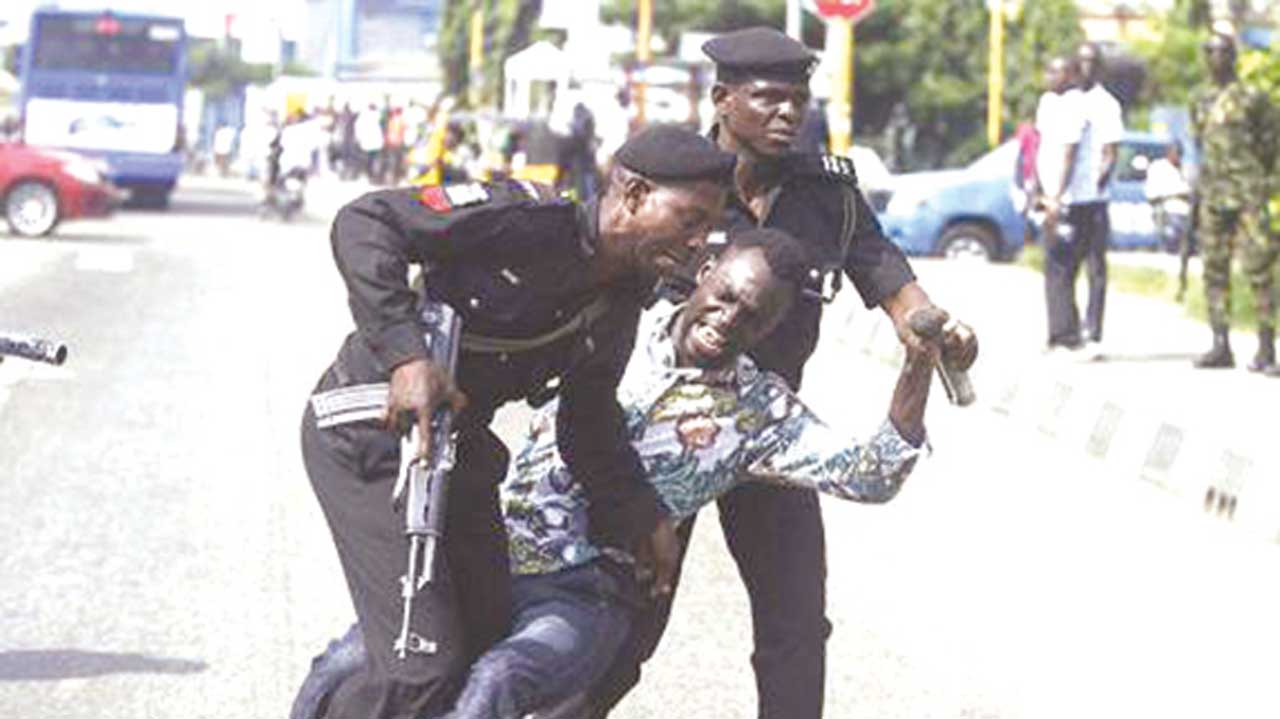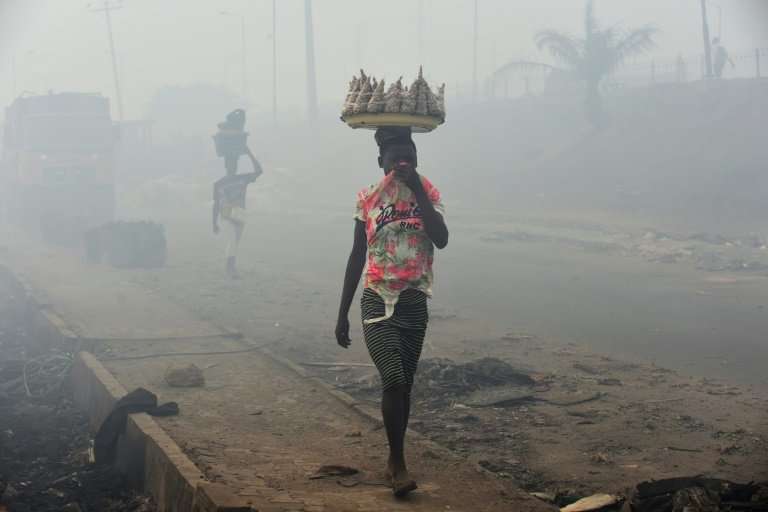
According to RSF, Nigeria is now one of West Africa’s most dangerous and difficult countries for journalists, who are often spied on, attacked, arbitrarily arrested or even killed.
RSF further said the index data reflected a “dramatic deterioration in people’s access to information and an increase in obstacles to news coverage.”
Nigeria falls under the countries classified as having ‘very bad’, ‘bad’ or ‘problematic’ environments for press freedom. Nigeria is ranked very low, and on the same level with countries such as Afghanistan, Jordan, Zimbabwe, Palestine, Qatar and South Sudan in the 120s category.
As the world marked the 2021 International Day to End Impunity for Crimes against Journalists in early November, Chairman of Nigeria Union of Journalists (NUJ), Lagos State Council, Adeleye Ajayi, urged the Federal Government and security agencies to end further attacks and reopen investigation of past assaults on media practitioners.
The Media Rights Agenda (MRA) Director, Edetaen Ojo, also charged the government to establish a specialised team of prosecutors to facilitate the effective investigation and prosecution of perpetrators of crimes against journalists and other media workers for Nigeria to fulfill its regional and international treaty obligations to ensure the safety of journalists.
In a programme organised by the International Press Centre (IPC) in partnership with Premium Times Centre for Investigative Journalism (PTCIJ), to discuss violence against journalists, the Executive Director of the IPC, Lanre Arogundade, said CSOs and non-state actors, including the various professional groups, trade unions, academics, etc., are critical voices that should be heard on the issue of safety of journalists.
On his part, the publisher of Premium Times, Dapo Olorunyomi, argued that journalists cannot afford to relent in the advocacy for complete freedom of the press as an important body that ensures transparency and accountability in governance.
Globally, 2021 remained a year of mixed fortune for the media. For the first time, the 2021 Nobel Peace Prize was awarded to two journalists, Maria Ressa of the Philippines and Dmitry Muratov of Russia.
The duo was honoured for their efforts to safeguard freedom of expression, which the Nobel Committee described as a precondition for democracy and lasting peace.
On March 31, the privately owned news website, Wadata Media, published an audio report, filed by Frederick Olatunde Odimayo, a freelance reporter and editor with the privately owned Grace FM, on the drug trade in Lokoja, Kogi State.
In that report, Odimayo went under cover as a drug buyer to expose a local trafficking group.
As a result, on April 16, in Lokoja, the capital of Kogi State, five men attacked Odimayo, beating him until he lost consciousness.
Committee To Protect Journalists (CPJ), Africa Programmes Coordinator, Angela Quintal, said, “authorities in Nigeria must identify those who assaulted Frederick Olatunde Odimayo and ensure they are held to account – including those who planned the attack.”
In June, two controversial bills, the National Broadcasting Commission (NBC) and the Nigerian Press Council (NPC) Act amendment bills, which aimed at providing tighter regulations for the media was sponsored by Chairman of the House of Representatives Committee on Information, National Orientation, Ethics and Values, Olusegun Odebunmi.
In his defence, Odebunmi said the bills, which were at the public hearing stage, were not designed to gag the media, adding that most people commenting on them have no knowledge of how they will operate.
The Senior Advocate of Nigeria and human rights activist, Femi Falana, however, described the bills as ‘anti-media’.
This development also made several newspapers in Nigeria on Monday, July12 publish an advertorial against the media regulations bills. The Nigeria Union of Journalists (NUJ), the Nigerian Guild of Editors (NGE) and the Newspaper Proprietors’ Association (NPAN) sponsored the advertorial, which appeared on the front pages of national dailies, with a bold headline titled, ‘Information Blackout’.
The advertorial said the NPC and NBC amendment bills being considered by Federal lawmakers were geared against the right of citizens’ information. This prompted the National Assembly to suspend the bills.
Speaker, House of Representative, Femi Gbajabiamila, however, said, “I will not be part of any bill that will seek to gag the press. No bill will come to the floor of the House that seeks to gag the press because the press is supposed to be the voice of the people.”
Similarly, on 4 June 2021, the Federal Government officially put an indefinite ban on Twitter, restricting it from operating in Nigeria after the social media platform deleted tweets made by President Buhari warning the South Eastern region.
This development sparked condemnations from Amnesty International Nigeria, the Socio-Economic Rights and Accountability Project (SERAP), the United States, the European Union and others.
In fact, Amnesty International Nigeria said, “the actions are the latest symptoms of the alarming backsliding on human rights across Nigeria. Social media platforms have helped Nigerians get information, communicate, hold useful dialogues and conversations, and demand accountability from the Nigerian authorities, particularly during the #EndSARS protests last year. It’s time to end the unlawful suspension of Twitter in Nigeria and let President Buhari know that Nigerians’ voices matter. Take action now.”
Early this month, it was reported that Nigeria’s economy has lost N499.32bn to the shutdown of Twitter since it came into effect in June 2021.
On September 8, it was reported that one Chukwu Odiahu, a Nigerian Television Authority worker in Kogi State was gruesomely murdered. Men of the Kogi State Police Command confirmed the killing. Spokesman of the command, DSP William Ayah, who confirmed the death, said information reached the command that an unidentified corpse was discovered along Okene-Magongo road at about 6.30am.
Ayah said when the Okene division visited the scene, it was discovered that the dead man was a staff of Nigerian Television Authority, Okene.
In his reaction, Arogundade said, “The increased and continued attacks against journalists and media workers is of worrisome concern. Media workers and their rights must be respected and protected, crimes and attacks against journalists should not be condoned, the perpetrators of these horrifying brutalities must be prosecuted and face the consequences for their actions.”
Also in October, a House of Representatives correspondent of Vanguard Newspapers, Tordue Henry Salem, was reported missing. He was last seen on October 13, 2021.
The NUJ in Federal Capital Territory, Abuja, had staged a peaceful protest at the Force Headquarters for the safe return of the missing journalist. According to the Vanguard newspaper, he was found dead on Thursday, November 10 in the nation’s capital.
While expressing extreme sadness over the death of Salem, Arogundade remarked that “this is another dark chapter in the history of journalism in Nigeria and we cannot but be very saddened by the death of yet another journalist. From trepidation over his fate after his mysterious disappearance, we have now moved to a state of shock, despair and mourning following the discovery of his dead body.”
He called on the Nigeria Police and other intelligence agencies not to relent in the efforts to find the killers of Salem or at least establish what could have killed him. But the police later announced that a hit-and-run driver killed him.
In November, the European Union (EU) revealed that 44 journalists have so far been killed in 2021.
At a media roundtable in commemoration of the United Nations international day to end impunity for crimes against Journalists (2021) organised by the EU, IPC and British Council, in Abuja, EU- Delegation Representative, Wynyfred Egbuson said, “UNESCO has reported an increasing number of attacks and threats against journalists. About 44 journalists have so far been killed in 2021 and many more attacked, unlawfully imprisoned, or missing, leaving their families awaiting news of their fate, sometimes for years.”
Also in December, the police invited another journalist, Fisayo Soyombo, over a report by his medium on alleged corruption in execution of some police projects.
He was held from morning till late evening when he was granted bail. His mobile phone was seized, making him unreachable during the period.
IPC, again, faulted this development insisting that those who feel aggrieved over media reports should use appropriate means to seek redress and not resort to self-help.
“IPC believes the time has come to stop attacks on journalists in Nigeria, so that the country would stop being counted among dangerous zones for journalists to practice across the world,” Arogundade said.






